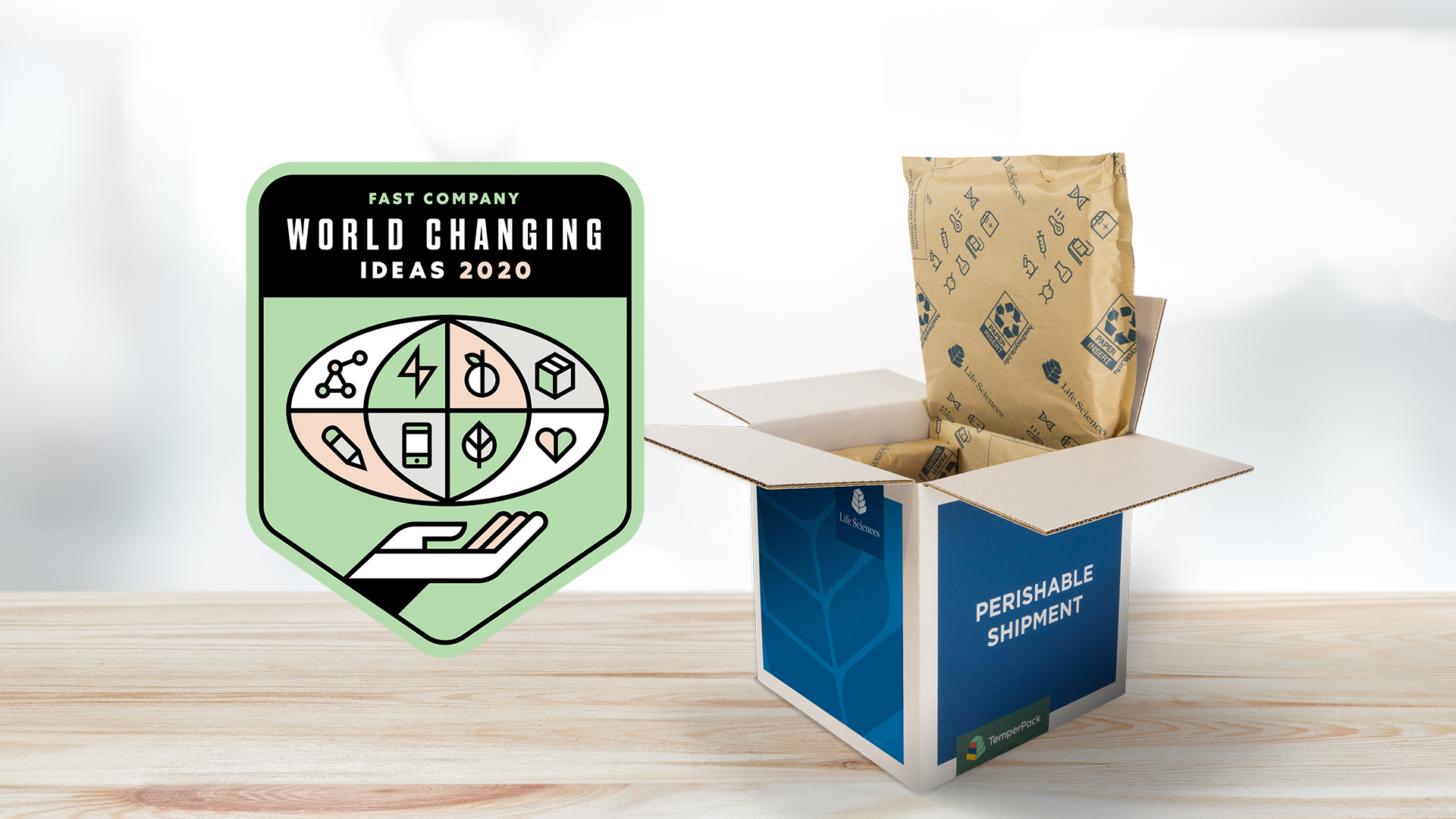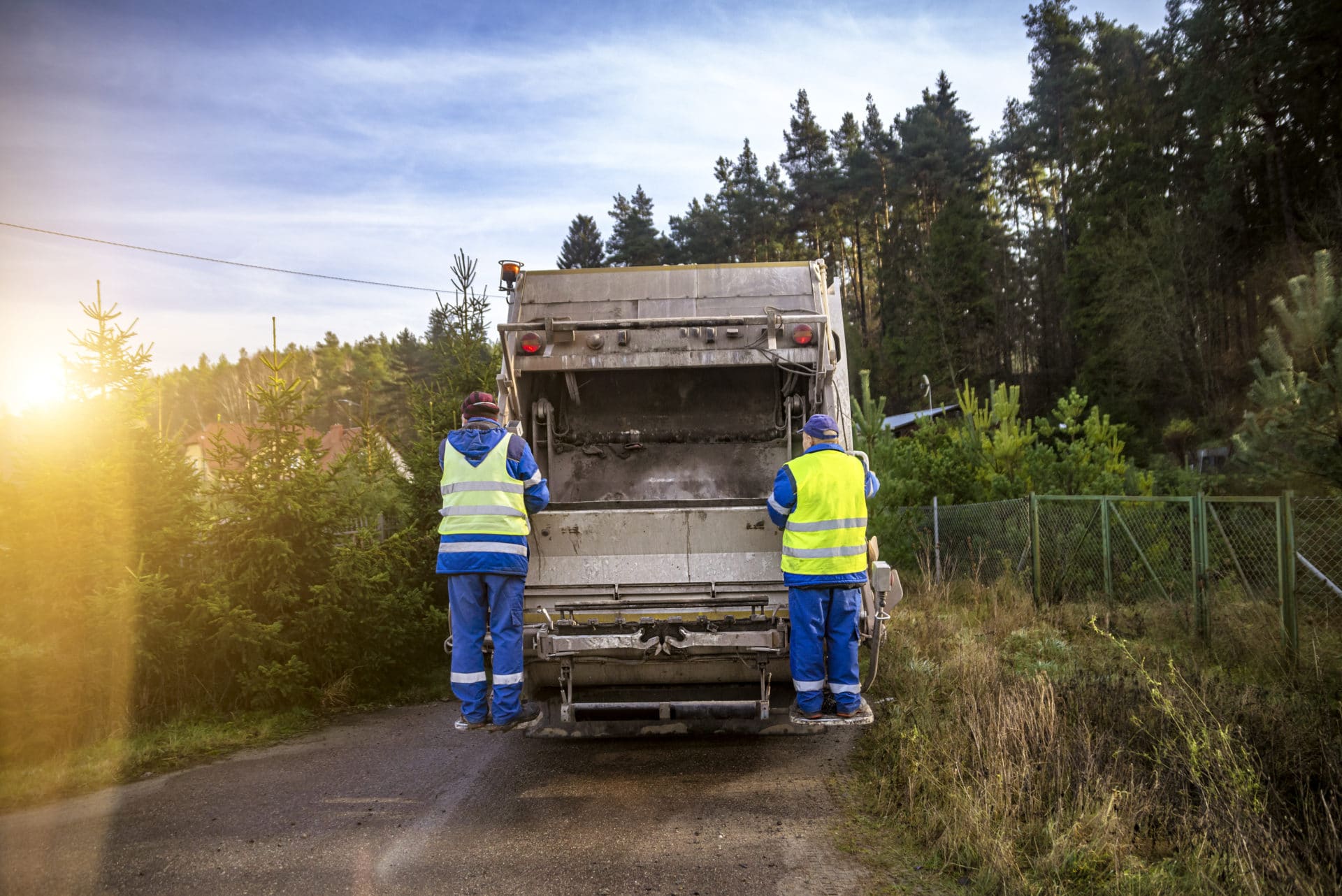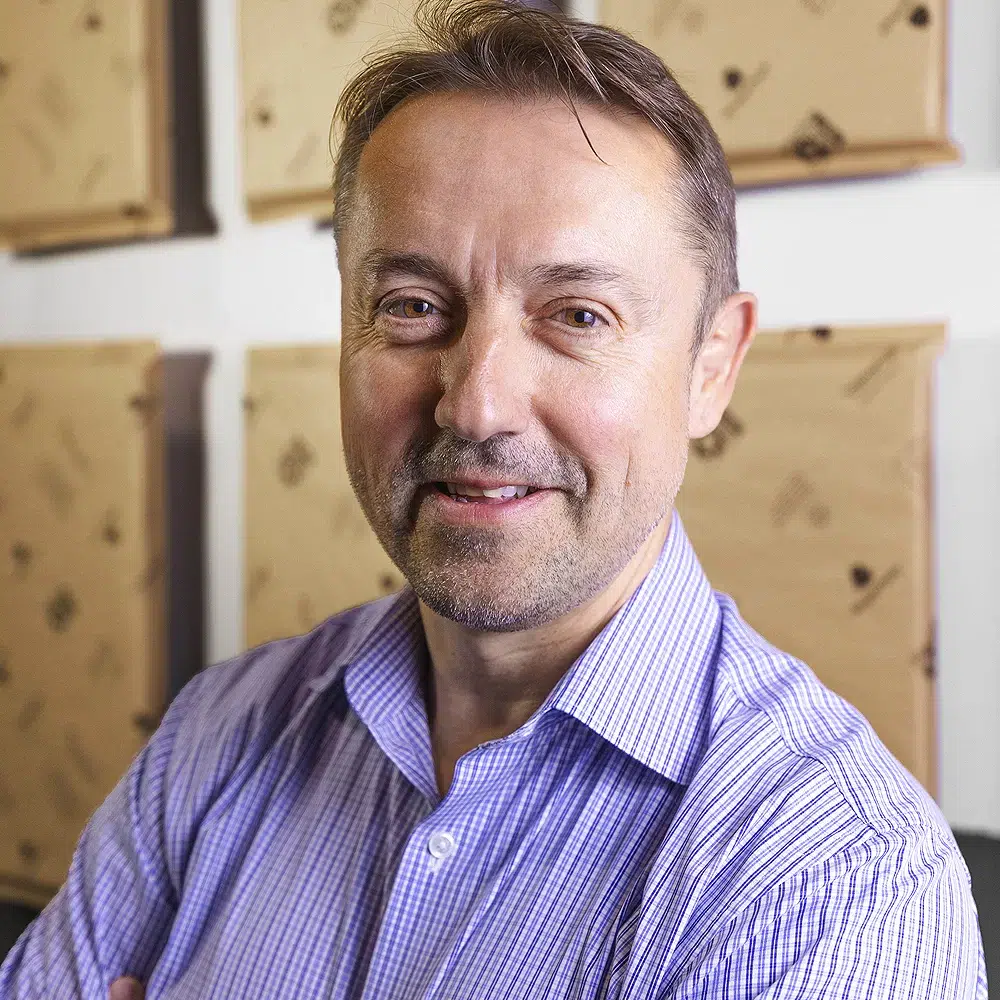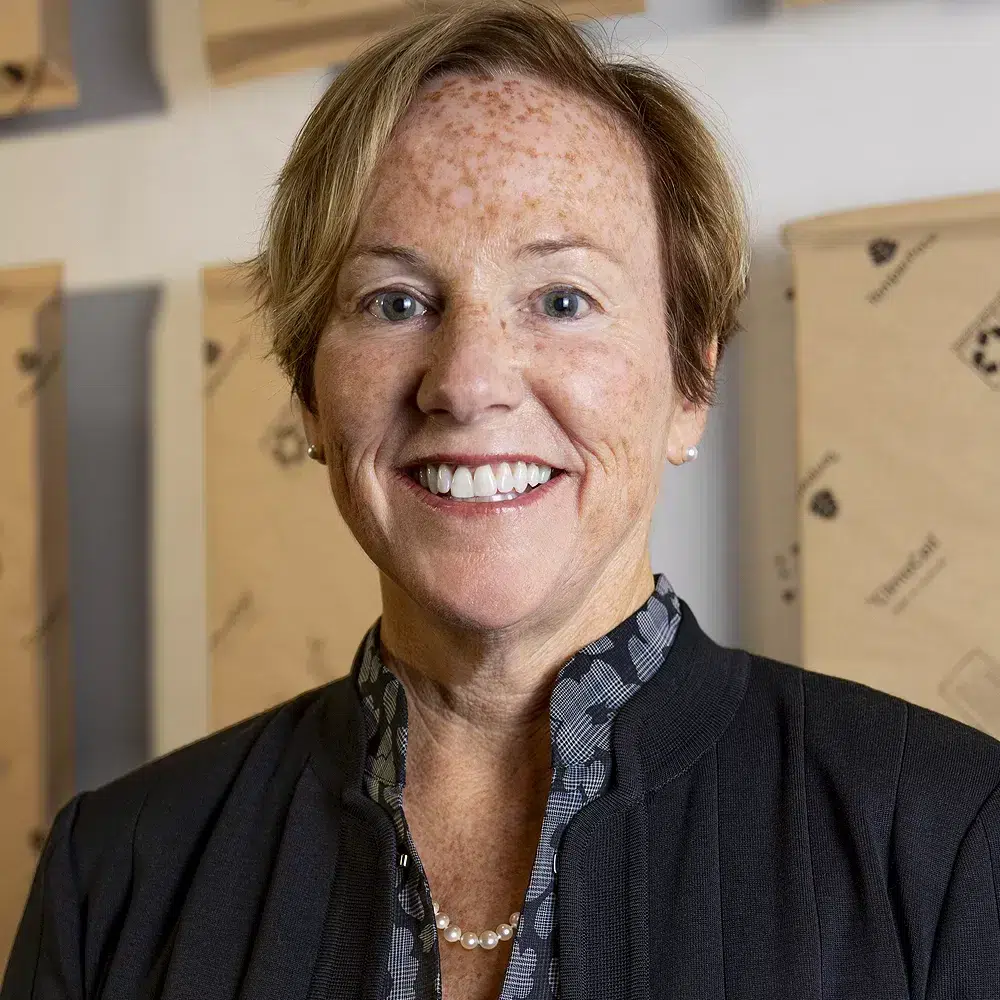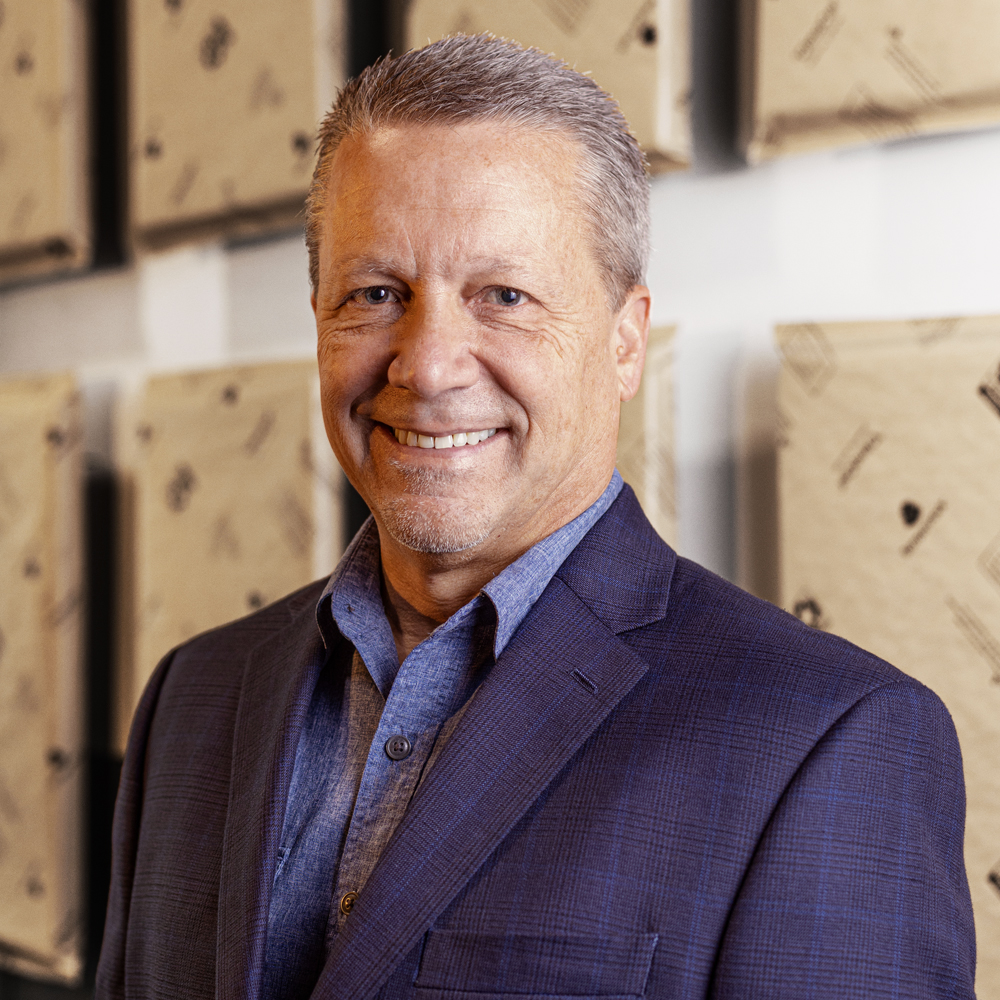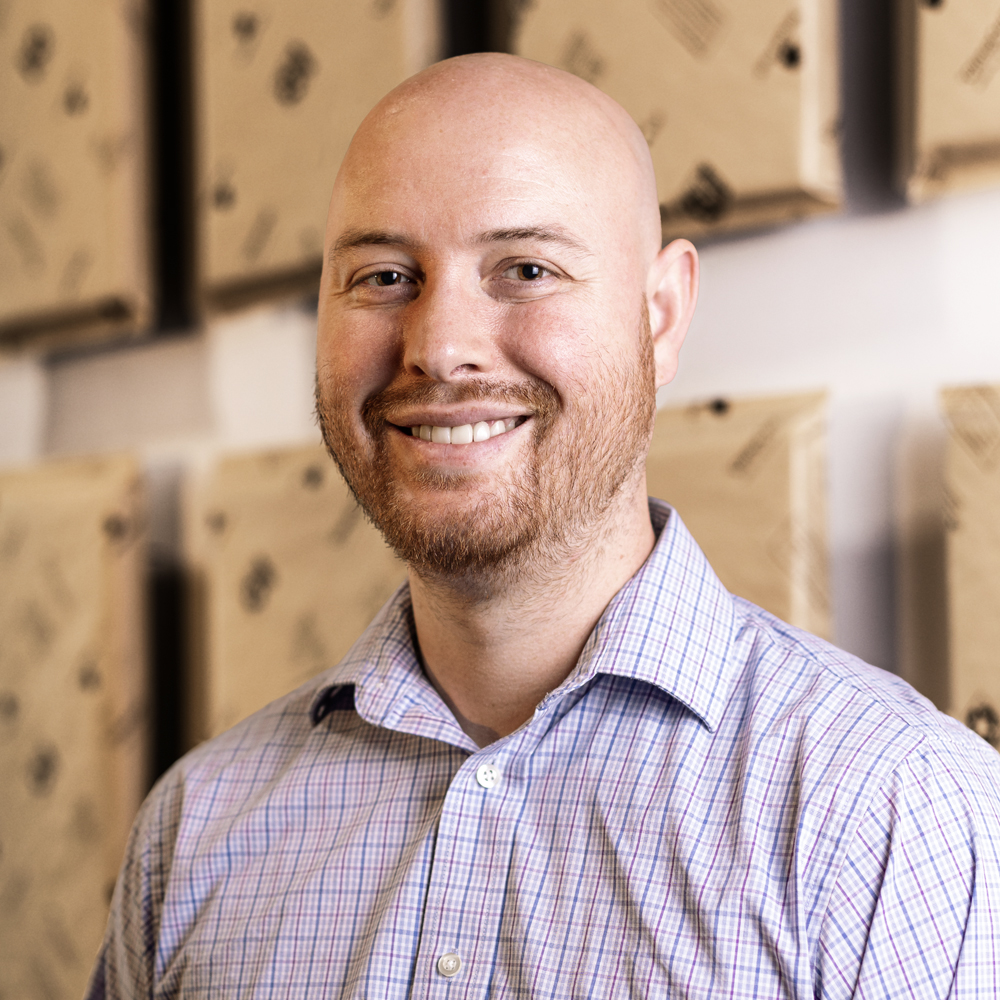Fast Company's 2020
World Changing Ideas Finalist
At TemperPack, our mission is simple: Protect products with packaging that protects the planet.
For the last five years, that mission propelled us to work hard to find a replacement for expanded polystyrene (EPS), also known as Styrofoam. EPS has a lot of attributes that make it a great packaging material in many applications, but it is hugely problematic for the environment, from cradle to grave. With the rise of e-commerce, we saw a huge potential surge in the use of Styrofoam to protect perishable foods and temperature-sensitive medicines, and we also saw a huge opportunity to offer something better.
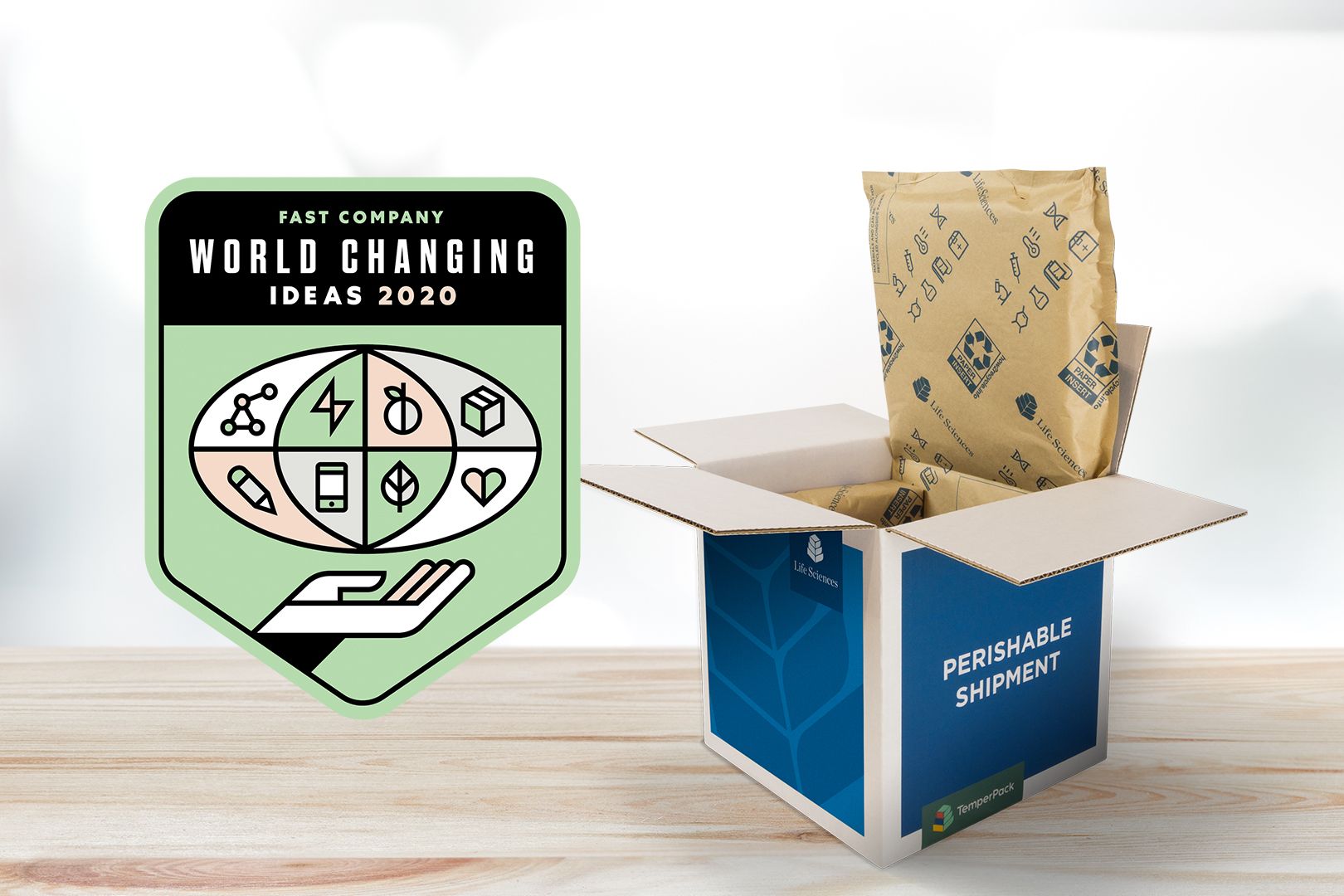
ClimaCell has been recognized as a “World Changing Idea 2020” by Fast Company.
Today that “something better” is ClimaCell. It offers similar thermal protection as EPS at a similar cost, but uses renewable ingredients, requires significantly less energy to manufacture, and is curbside recyclable. To date, Climacell has protected over 10 million shipments for companies including HelloFresh, Misfits Market, and Diplomat Specialty Pharmacy.
To us, replacing EPS is an important mission and real opportunity for growth. We learned last week that Fast Company thinks ClimaCell is a World Changing Idea. That’s pretty awesome.
Specifically, ClimaCell was named a Finalist in the Food Category, alongside awesome companies including AKUA, InFarm, AeroFarms, and our good friends and partners at Imperfect Foods. The whole World Changing Ideas list is here. And this video showcases a few really inspiring ideas outside the food category, including a new innovation from Abbott Labs for babies with congenital heart defects, a new 3D printer that can build a house, and a new innovation giving people in developing countries access to eyeglasses.
It’s an inspiring list. We’re grateful to be a part of it, and ready to keep going.
Reusable Packaging: Great Potential, But Challenges Ahead
Wouldn’t it be great if we didn’t have to throw so much packaging away? Reusable packaging feels like a huge step toward reducing what goes into landfills. We're excited to see great companies such as Nestle and UPS joining the TerraCycle Loop initiative. We also applaud Otter Products in exploring ways to make reusable packaging mainstream. All of this is not only exciting, but also imperative.
Unfortunately, the path to high-volume reusable packaging isn’t nearly as smooth as it may seem. Customer costs, logistics, and efficiency are just three of the main stumbling blocks for companies exploring reusable packaging.
Customer Costs
Although the meal-kit industry is likely to see strong double-digit growth year-over-year through 2023, customers switch services frequently. We can all agree the world needs less Styrofoam®, but customers may not be ready to pay for a deposit for a reusable package. Amazon and PeaPod have both struggled with this problem. These deposits increase customer acquisition costs and present a barrier to trial for companies that pass those costs on to their customers. In the future, if customer preferences have stabilized, companies might be able to charge for a reusable option. For now, this market segment is likely to remain volatile for the foreseeable future.
Logistics
The reverse logistics associated with collecting, sanitizing, and re-deploying packaging are costly and labor intensive. These reverse logistics tend to work only in closed-loop systems, such as blood banks. Meanwhile, people recycle corrugated paper properly 93% of the time. New forms of e-commerce packaging should be designed to leverage the existing efficient, nationally available, corrugated waste collection streams. Reusing a single package hundreds or thousands of times may be more environmentally sustainable than using responsibly-designed single-use packaging solutions. The question remains: "will people actually re-use these packages, and is the energy required to make this system work worth it?"
Efficiency
Right now, meal-kit services are focusing on fundamentally proving the viability of their business models. They are taking a hard look at their cost structures, with packaging and logistics front and center. It's much easier to continuously customize single-use packaging, using various pack-outs, sizes, and components to minimize footprint, cost, and weight. Reusable systems are less efficient because they are expensive and hard to change once the investment has been made. Reusable packaging is rigid in a market that still very much relies on a flexible supply chain. We're happy to see innovation in the space of e-commerce and subscription-based cold-chain packaging. At this point, however, the market cannot bear the costs or complexities of implementing reusable packaging.
As work remains to be done with reusable packaging we will continue to innovate and create more in the world of temperature stable, paper-based, curbside recyclable products. In the end, reusable or recyclable, we can all do well by creating better solutions for the planet.
TemperPack's James McGoff Featured on NPR's Full Disclosure
Last Thursday, TemperPack's James McGoff was a featured guest on Roben Farzad's NPR podcast Full Disclosure. In addition, Kate Daley, Executive Director of the Center for the Circular Economy at Closed Loop Partners, joined the discussion. During the podcast, they covered a full range of topics regarding recycling in America. Listen below:
